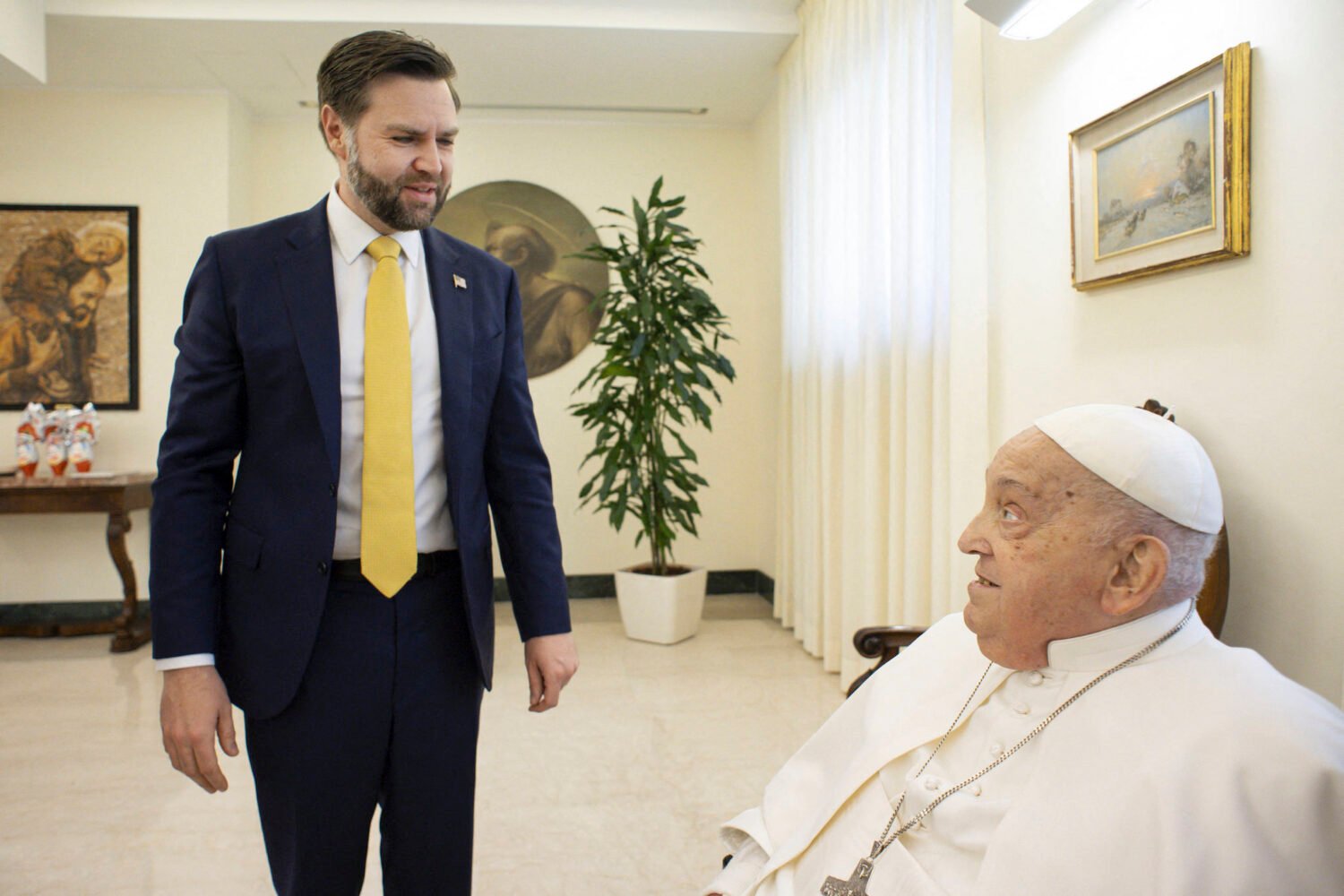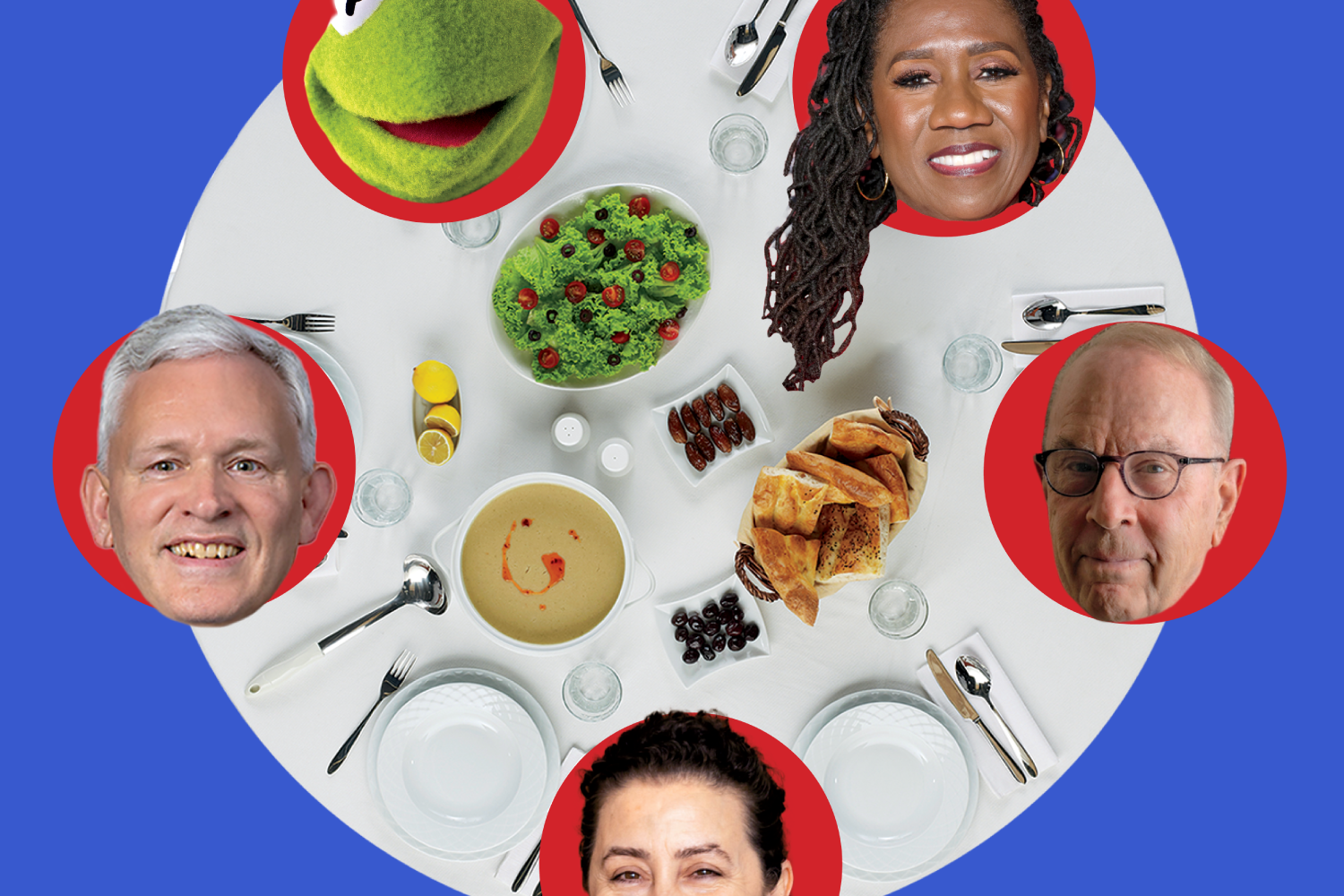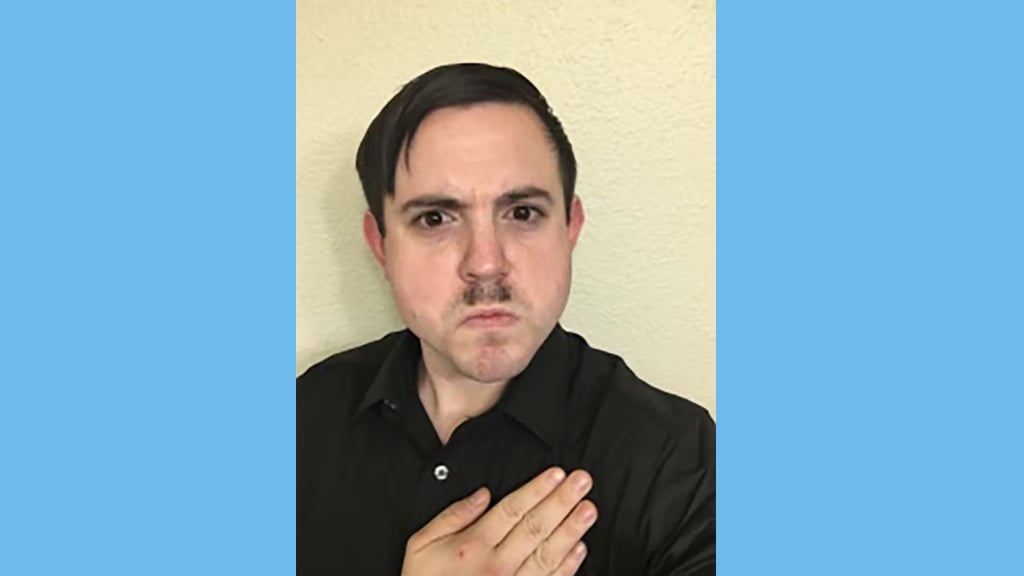Kyle didn’t like the idea of watching his wife have sex with
another man. While he wasn’t the jealous type—he could watch his wife
flirt with another guy and not feel a thing—voyeurism didn’t turn him
on.
But the rules of marriage were forever changed for Kyle, a
stay-at-home dad, and his wife, Hope, a psychotherapist, when they decided
to open their marriage to other romantic and sexual partners. It was
Hope’s idea.
“It’s not that what we had wasn’t good,” she says. “I just
wanted to try something different.”
That’s how Kyle found himself in the bedroom of another man two
years ago; he’d insisted on tagging along on Hope’s date. Kyle, 42, prides
himself on being a loving husband, and he wanted to make sure another man
would treat his wife respectfully, tenderly even, during sex. “He’s very
protective of me,” says Hope, 36.
This is the point at which most people start looking for holes
in Kyle and Hope’s marriage, reasons why having multiple partners doesn’t
make sense—or, for the less open-minded, why this suburban couple is off
their rocker: Are they unhappy? Their sex life must be bad. They’ve got to
be into some kinky stuff, right? But the answer—they swear—is no, no, and
no.
Kyle and Hope have been married ten years. They have two little
boys, a nice home in Alexandria, and a close relationship. They have sex
no more than any other couple chasing around two kids does, but they are
in love. Which is why Kyle was hesitant to open their marriage when Hope
suggested it. Life with her was so good—why risk mucking it up by
involving other people? Still, he was intrigued.
“We saw it all as a big experiment,” Kyle says. “We wanted to
try it out and see what it was like.”
He struggled in the beginning. While Hope seemed to meet new
boyfriends easily, Kyle hadn’t been confident dating in his twenties.
Suddenly he was back to standing awkwardly at parties trying to make
conversation with women. He scrolled through the “polyamorous” listings on
Craigslist and OkCupid, looking for women open to dating multiple people
at once. He tried to remember how to flirt: Use your quick wit. Listen
more than talk. Show friendly body language.
Then he met Jane—a five-foot-ten, curvy woman with dirty-blond
hair—at a party for polyamorous people. “We just clicked,” he says. They
exchanged phone numbers, and she texted him that night: “Maybe we could
have dinner sometime.” Jane was also married, living with her husband and
eight-year-old daughter in Laurel. On their first date, Kyle took her to a
Japanese steakhouse near her home. They made out in the car afterward,
then went home to their respective families. Hope encouraged Kyle; she
really liked Jane.
A few months after Kyle met his new girlfriend, they started
Friday-night sleepovers. Jane and her daughter, Anya, pack a bag and head
to Kyle’s house every Friday afternoon. He might give Jane a quick peck on
the lips when she arrives, but nothing more until the kids are
asleep.
“To the kids, it feels like a play date,” Kyle says. Anya runs
off with his seven-year-old. After Kyle and Jane put the kids to bed, the
two of them make dinner, catch up on their week, watch a movie. They sleep
in the master bedroom; Hope spends Friday nights at her boyfriend’s
house.
“We explain it to the kids in an age-appropriate way,” Kyle
says. Simply put, they tell them that their friend—Anya—is coming for a
sleepover. The kids are so excited, he says. Kyle knows the questions will
become more complex over the years and says he’ll deal with them as they
come up. For now, they’re careful to call their other partners “friends,”
and they don’t touch—or even flirt with—them in front of the
kids.
This is how he puts it: “If you look at the relationship Hope
and I have, sex was the main connector. If I wanted sex, I had to get it
from her. But when we could sleep with anyone, sex was no longer a reason
to stay together. For a little while, this made me feel adrift—it was
scary to let go of that bond. Suddenly, we were asking ourselves: Why am I
with this person now, if not for sex? That’s why this experience has made
our relationship so much stronger. I’m still with Hope because I love her.
She’s wonderful. We have children together. We built a life together. Sex
is just one aspect of why we stay together.”
• • •
And sex is only one reason why couples practice polyamory. The
word means “many loves,” and that’s how it differs from swinging, which is
more about sexual conquest than meaningful connections. Polyamorous
couples want long-term relationships with other people, not just one-night
stands. They want the freedom to fall in love with other people, to get
that wonderful rush of dopamine that comes with meeting someone new,
hearing all of that person’s stories for the first time, and staying up
all night listening to old music or talking about favorite
books.
Polyamorists don’t think monogamy is wrong; they simply believe
it’s not for everyone. But hearing “poly” couples speak of monogamy is
like listening to an ex-con reflect on his years in prison.
Jonah, a government contractor in Northern Virginia, describes
monogamy as an “anchor” around his ankle. “I felt like I was drowning in
my marriage,” he says. He raised four children as an evangelical
Christian, but after cheating on his wife, he decided there had to be a
better model for marriage. He divorced his then-wife and met a woman named
Olivia at a young-professionals happy hour at Lulu’s, a former bar in
Georgetown, in 2004.
Olivia worked in international relations. She was smart,
beautiful, successful. “We talked early on about the fact that we didn’t
feel like we could be everything for one another,” Jonah says. “We didn’t
want to put that pressure on each other.”
Jonah and Olivia married a year later, and they opened their
union up to other people soon after. They’re drawn to “unicorns,” a term
in the poly community for unattached bisexual women (who are considered as
rare and special as unicorns). Says Olivia: “I still liked the idea of
being married. There’s something deeply embedded in one man and one woman,
and I couldn’t let go of that. My other relationships are like a
bonus.”
Many poly couples express a similar sentiment: Having more than
one partner can make you feel more fulfilled, with each person nurturing a
different aspect of your personality. “Many of us don’t want to end a
relationship with someone we really love just to get other needs met,”
says Anita Wagner Illig, a polyamory advocate in DC who founded the
website PracticalPolyamory.com and teaches classes for people interested
in the lifestyle. Illig describes an ideal situation as one that “allows
us to have one partner who shares our passion for, say, golf while another
shares your activist nature or offers great sexual chemistry.”
• • •
Open relationships aren’t new. Elisabeth Sheff, a sociologist
and author of The Polyamorists Next Door, who has been studying
polyamorous families for a decade, says there were groups in the US
practicing free love as an alternative to monogamy as early as the 1800s.
In the 1960s and ’70s, communes, which often included some form of
atypical sexuality, grew in popularity and “group marriage” and “swinging”
became intriguing forms of sexual experimentation. (The freedom gained was
squelched when the AIDS epidemic hit in the 1980s.)
Divorce rates have been hovering near 50 percent for years—not
exactly a cultural success story—and some people are vowing “not to be
like our parents,” without knowing what they could do
differently.
There’s anecdotal evidence of a spike in interest in polyamory
in recent years. Last year, Showtime aired seven episodes of a reality
show about two polyamorous couples in California, called Polyamory:
Married and Dating. (Season two premieres on August 15.) And Illig
says that poly social groups have seen a spike in members in recent
years.
As in most major cities, Washington’s polyamorous community is
tight-knit. “It can be a bit incestuous,” says Olivia. People tend to meet
at friends’ parties, though sites like OkCupid let users search for poly
individuals, and there are Meetup.com groups in the District, Northern
Virginia, and Baltimore. One group of poly twentysomethings used to meet
monthly at DC Bread & Brew near Dupont Circle, identifying their group
with a copy of Opening Up or The Ethical Slut,
books about open relationships, on the table.
Sheff says polys tend to be highly educated and upper middle
class or wealthy, in part because there’s less risk for them if they’re
outed. (If you can pay for the top lawyer in town, you’re probably not
going to lose your kids because you have a boyfriend or two.) “Social
privilege is a buffer that can make nonconformity safe,” Sheff
says.
At the same time, local couples say polyamory provides an
escape from the social trappings of Washington. There’s no keeping up with
the Joneses in poly circles. That is, unless the Joneses want a one-night
stand.
Says Jonah: “In DC, you go to events and everyone is posturing
over where you work, what you do. It’s exhausting. In the poly community,
people meet up to have a good time. You’re connecting more on an
interpersonal level. I knew someone for over three years before I even
knew what he did, and I was shocked by how high up in government he was.
In the poly community, it’s not about who you know; it’s who you
are.”

As I reported this story, one question kept coming to mind: Why
do these couples get married at all? Why not just stay single and date
multiple people? Somehow swinging seemed to make more sense, because it’s
just about sexual needs, whereas polyamorous couples develop full-on
relationships with their partners, which you’d think would be
overwhelming. Imagine coming home giddy from a great first date only to
find your husband just got his heart broken by a girlfriend.
Many polyamorous people were previously in miserable monogamous
marriages and turned to polyamory because it seemed a more realistic
alternative. Other couples spent years together before deciding to open
their relationship. Some had low self-esteem in their younger years and
use polyamory to feel more desirable to their spouse, now that others have
shown interest in them. Some go so far as to call polyamory a “sexual
orientation”; it feels as natural to them as, say, being gay.
Sheff says men are usually the ones who ask their wives how
they’d feel about opening their marriage. They think polyamory is going to
be out of their wildest dreams: They can sleep with whomever they want, go
on dates with other people, and still go home to their wife for dinner
every night and snuggle on the couch in sweats. But it doesn’t always go
as planned.
One of two things tends to happen, says Sheff: Men realize they
want to date around but don’t really want their wives to. Or they find
polyamory too complicated. It’s hard enough to keep one relationship
going. How do you manage three people’s moods, expectations, and sexual
needs? “We often joke that the hardest thing about polyamory is finding
the time,” says Anita Wagner Illig. “Truly, polyamory isn’t for sissies.
It’s tough.”
Surprisingly, Sheff says, it’s often the women who flourish
most in polyamory. Females tend to enjoy developing emotional connections
with other partners more than men do, and they like the leverage it gives
them in their marriage.
“A husband can’t do what he likes day to day and get away with
it,” Sheff says. “Suddenly a wife has the power to vote with her feet.”
For example, while a monogamous wife isn’t going to file for divorce
because her husband didn’t load the dishwasher, a poly woman might feel
annoyed and head to her boyfriend’s house to vent. Child care tends to be
shared more equally because both partners are suddenly scheduling dates on
a social calendar. Plus, women have the pick of the litter because there
are fewer polyamorous women than men.
“It’s so common that it’s become a cliché,” Sheff says. “Men
will drag their wives to polyamory kicking and screaming. Then the man
doesn’t want to do it anymore and his wife is like, ‘What? This is great.’
”
• • •
That’s the pattern Rourke and his wife, Janie, fell into. They
were married in 2002 and decided to try swinging several years later. “I
love my wife. I would do anything for her. She’s my best friend,” says
Rourke, 45, who lives in Rockville. “But sexually, we weren’t as
compatible as others might be. I felt these sexual feelings for other
women, and I wanted to be honest with her about that.”
His wife wasn’t thrilled with the swinging lifestyle—she craved
more emotional intimacy with the people she was hooking up with—but went
along with it. The couple grew close to some of their swinging partners
and soon found themselves emotionally entangled in long-term relationships
with them.
Recently, Rourke has grown disenchanted with the lifestyle. He
feels depressed every time his wife makes plans with her boyfriend. He
admits this is in part because he’s not dating anyone right now. But he
also fears he’s watching his wife slip away.
“When you get emotionally attached to someone else, it can
dilute your own attachment to your partner,” Rourke says. He knows his
wife is in love with her current boyfriend, and he also knows they have
great sex. But it’s how connected they seem in front of him that bothers
him most. Sometimes Janie, 47, and her boyfriend rub each other’s arms
lovingly in front of him. A small gesture, but it makes Rourke feel crazed
with jealousy.
On the day I interview him, Rourke says he’s going to ask his
wife to break it off with her boyfriend. “I want to go back to a
monogamous marriage,” he says. “I’m tired of the parties. I’ve had sex
with a lot of women—more than I ever thought I would in my lifetime—but I
want my wife back.” A few months later, they decided to leave the
polyamory community and return to swinging, which Rourke says is less
threatening to their relationship.
He and his wife made a deal years ago that their marriage would
always come first—before any other partners.
“Everyone says that one person can’t be everything,” Rourke
says. “But maybe you don’t need everything in a relationship. It’s a
pretty hedonistic view of relationships—that different people can fulfill
all the sides of you. It’s an easy way to get hurt.”
• • •
Every polyamorous couple has rules, a set of boundaries spelled
out by both partners. Changing the sheets after sharing the marital bed
with someone else is a given. Some couples want to hear every detail of
their partner’s dates, while others don’t want to know anything. Some
couples assign a night of the week that’s theirs only. Many like to know
if their spouse has a new boyfriend or girlfriend; they often want to meet
the person.
Jonah and Olivia have been polyamorous for a few years, but he
made a misstep that taught them how fragile an open marriage can be.
They’d agreed not to date outside the polyamorous community, but while
Olivia was traveling for work for several weeks last year, he started a
relationship with a woman who identified as monogamous. (She liked Jonah
but wasn’t interested in a threesome. Another rule: Don’t try to convert
the monogamous. It always ends with somebody getting hurt.) Olivia didn’t
know anything about it until she returned home and Jonah told her he had a
physical connection with this woman. He wanted Olivia to meet
her.
Olivia was upset—she said the woman was nice enough but there
was no one to vouch for her ability to carry on poly relationships. Who
could say she wouldn’t try to convert Olivia’s husband back to monogamy?
It made the woman a wild card, so Olivia asked her husband to end it. He
was reluctant, but he had to—Olivia’s needs came first. Says Jonah: “I
realize now that I overstepped a boundary.”
For some poly couples, the only rule is to wear a condom.
Jesse, an IT consultant in Reston who has been in open relationships for
years, got married in 2011 to Lily, who is also polyamorous. Recently, a
former girlfriend of Jesse’s came to town for a concert, and he offered to
let her stay on the couch in their one-bedroom apartment. He approached
Lily a few days before the woman’s arrival: “When she comes over, she’s
going to want to have sex. Is that going to be okay with you?” Lily was
fine with it. Says Jesse: “There’s no sneaking around for me and my wife.
No illusions about what may or may not be going on. We’re incredibly open
with each other.”
That night, Lily stayed in their bedroom reading while Jesse
messed around with his ex-girlfriend on the couch. When he popped into the
master bedroom to get a condom, his wife didn’t look up from her book.
“You still want me to use a condom, right?” he asked her. She nodded. Lily
and her husband are “fluid-bound,” meaning they don’t use condoms when
they have sex with each other but always use them with other people,
unless they both agree that the person is invited to enter their
“fluid-bound” circle.
The distinction is critical. In a marriage with few sexual
boundaries, they need a way to protect themselves against sexually
transmitted disease.
• • •
When a monogamous marriage is going through a rough patch, one
partner may think that inviting other people in might improve the
relationship. It’s often a mistake. “We know polyamory is not a way to fix
a relationship,” Illig says.
The practice also tends to split a marriage if one partner is
already cheating and suggests polyamory so he or she can feel better about
past indiscretions—which may have been what Newt Gingrich was thinking
when he allegedly asked one of his former wives for an open
marriage.
Other pitfalls arise when both partners agree to try polyamory
but only one likes it, or if one partner doesn’t have healthy
self-esteem—suddenly a couple can find themselves fighting over issues
like abandonment or jealousy.
But as Kyle, the stay-at-home dad, tells it, when polyamory
does work, it can make partners more generous with their spouses, free of
petty jealousies and small-mindedness. He remembers watching his wife,
Hope, fall in love with another man and how happy it made her. She was
standing at the top of the stairs beaming. When he asked her what was
going on, she said, “He told me he loved me!” Kyle broke into a
smile.
“If you can derive joy from other people’s joy, even when
you’re not the cause, then you can be poly,” he says. “If not, you’re
going to be at odds with it. It would have been very selfish of me to be
upset at that moment. But I wouldn’t have known that unless I tried
it.”
Brooke Lea Foster, a former Washingtonian senior writer, has never considered an open marriage. Couples’ names were changed in this article to protect their privacy.
This article appears in the August 2013 issue of The Washingtonian.



















